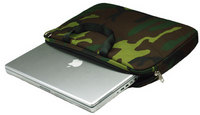
So I have repeatedly been attracted to the blogosphere and repeatedly been repelled. I recently had the pleasure of sitting down with Michele Montas an award winning journalist and widow of Jean Dominique (Agronomist 2003) (thank you SCOR for a kick ass conference). In discussing the role of media and the potential for an authentic critical voice, she suggested that one area of prospect and hope were blogs. Now I usually look at blogs for people's takes on news, after all they are not verifiable, and there is no quality control, but I had often put blogs off as a lot of bang for a little buck. To hear her mention them as a tool of critique, I really had to rethink this blogging thing. It's commonly acknowledged that a finite number of people control the stories we read and hear on the news. When I was younger, that frightened me, now it just pisses me off!
One of the first issues with blogging as revolutionary would be the digital divide. Even though in the last ten years access to the internet has increased greatly in public spaces (i.e. libraries, coffee shops, even McDonald's and KFC) there are still a number of folks who are without access to the internet. There are of course a number of barriers. If you aren't computer literate, blogs are about as much an option as me walking onto the Pistons. With that said, I have found a lot of blogs out there that deal with issues of race, class and gender that make me hopeful that not just rich white men are in the blogosphere. Not that I have anything against rich White men, but controlling all the media is just not playing fair ;) Even as blogging becomes more common and people have more options on blogging software there is the inevitable issues of voice and silence come up. There are plenty of company blogs, wikis, and other variations that exist to help people their ideas out to the masses. Some of my good friends blog for comedic relief, political jousting, and even as a reflection of their work experiences. Which lead me to thinking about the lines between formal and informal blogging. Granted, blogging is rather informal by definition but ther are a number of ways blogs can be used. Is it constructed to be an alternative to the news? Is it a personal reflection? Or is it something you can use to cover your ass if you mess up on an official publication? I guess it can be all of those, but I personally want them to be radical and critical... enter my bias.
So how do people get to your blog? How do people connect to your ideas? How can you know you're going to find the information you want from the sources you trust? It's hard to come by. People get to blogs through so many different ways, but still there is no formal way of categorizing them. I have taken notice of Technorati's work, but trust me, I'm sure 9 out of 9, I mean 10 people don't know about Technorati and are still using google to enter the blogosphere. Unfortunately the more we categorize, sanitize, and organize the less power the blog may have. But on the other hand, the 1 bajillion blogs that exist can't possibly be what we need.
In closing, while talking with Ms. Montas one of my friends asked her for her favorite blogs. I sat there waiting, waiting to hear from a woman who knew the power of media and had been doing it for so many years...Unfortunately she never revealed her sources. So I'm still looking for something revolutionary, if it will come in the form of a blog is yet to be seen.
p.s. If you'd like to hear Haunani-Kay Trask's keynote from the SCOR conference click here.
p.p.s. It's really annoying that blogger's spell check always comes up with "blog" as a word spelled incorrectly.

7 comments:
Ahhhh - the power of apple - what a cute pic...oh and your post was good too. ;)
No really - sounds like a great conference. I sure miss that about Michigan - not too much going on here.
Even if the digital divide were solved (and that's a big if), I don't see blogs as revolutionary in the same way that I'm fairly skeptical of the internet as revolutionary:
1. the internet's become a global shopping mall
2. access to the internet is controlled (look at china)
3. too many blogs seem to be too much about ego
4. internet in general is very open to surveillance
Dance-
I'm not an apple person, but the picture worked ;)
Anon-
Admittedly revolutionary could be a stretch, but it may not be. If you think about it guerilla radio has been used in revolutions and it was designed as a response to controlled airwaves and was able to quickly disseminate info, so if you host your own site (not blogger or some other one) and then you could post simple html. I agree the internet is heavily surveilled, so were the airwaves when folks used the radio during times of revolution. In my view it's about what your saying, when you're saying, and to whom. I agree with your other too points, but I'm not sure it subtracts for the revolutionary potential.
Revolution is a mindset. It can take place anywhere. Why? Because anyone can be responsible for change. By limiting where and how they begin - we limit WHO can begin them. If you truly believe that anyone has the potential to promote change - then you have to believe that a revoluntion can begin anywhere. Most people get their news and information from blogs like these. We are all responsible for spreading information that we "just read on someone's blog."
The idea of revolution is medium-agnostic. Internet, TV, radio, word-of-mouth, conference, whatever, can all be leveraged by the determined "revolutionary." What is at the heart of any movement whose aim is change and advancement is unity. People can unite based on anything (from firing Mat Millen to saving the rain forest) and through any means (read: any medium). The success of any change movement going forwared will be based on its proponents' ability to leverage multiple forms of media to convey its message to their audience and those they wish to influence. Anonymous #1 identified weaknesses with the Internet as a medium for revolution. I respond to that by saying not to discount its effectiveness, but instead to use other means to make up for those highlighted shortcomings. I agree with Dumi that the Digital Divide is real. I also believe that conquering it is achievable. And I am certain that you cannot solve a technical problem (even a technology access problem), without leveraging technology (a great example of a project I've worked on that does just that is Detroit Connected.
To me, what is important is that we stir up a spirit of unity, by any means necessary.
Originally Posted by Brandon Q. on Feb 18th:
Great post Dumi. I must say that when I started blogging I wondered about the digital divide and whether or not I could reach the people I really wanted to connect with. But if you think about it, even though bloggers tend to have experienced higher education, blogs allow people to engage their revolutionary ideas. And I think that blogs are the most powerful because it shatters the myth that Black people have a "leader" that speaks for all of us.
Also, think about all the current/future Black professors we have and their constant pressure to get articles published in journals that most Black people have never even heard of, not to mention being able to decipher the statistical models and a clear action plan. How then do you reconcile that difference? I think you do it by being the best at what you do, be an active member in your community, and make sure your voice is heard, loud and clear, (blogs or otherwise).
*a comment moderation issue did not allow me to publish this earlier*
Immortal Technique on revolution.
Post a Comment